People
Bridging People, Sharing History
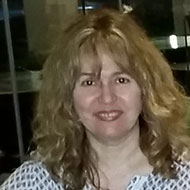
Sandra Montón Subías
Principal Investigator in ABERIGUA and co-director of the San Dionisio’s excavations at Humåtak (Guåhån)
Sandra is a feminist archaeologist endeavoring how gender, past and present, is constructed. She currently investigates modern colonial situations, but she has traditionally focused on the archaeology of the Bronze Age Mediterranean. She is also PI in the Project GenderGLOBAL. From Prehistory to early modernity in the Marina Islands and head of the research groups on Colonialism, Gender, Materialities and on Social Archaeology and Gender Studies.
Sandra is an ICREA en la Universidad Pompeu Fabra (Barcelona, España) Here, he teaches “Archaeology of Colonialism. Past and Present” and “Gender, Sexuality, and Diversity”. Sandra lives in Barcelona with her son Pau and her pug Perla.
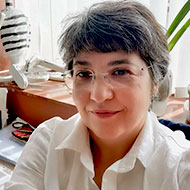
Natalia Moragas
Codirector of ABERIGUA excavations at San Dionisio.
Natalia is an archaeologist interested in processes of cultural change between two different societies through the study of material culture. Much of her research is developed in central Mexico studying the processes of cultural change between the pre-Hispanic era and the early colonial period. She is also member of ABERIGUA, where she co-directs archaeological excavations at San Dionisio in Humåtak (Guåhån). Natalia is a Fellow Serra Hunter Associate Professor of the Department of History and Archeology of the University of Barcelona She spends her free time travelling, reading and volunteering for the Red Cross.
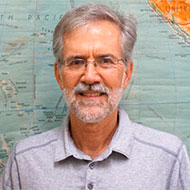
James M. Bayman
2017 and 1018 co-director of ABERIGUA excavations at San Dionisio.
Jim’s archaeological research focuses on colonialism and technological change in traditional Pacific island societies, including Hawaii and the Manislan Mariånas. His decades of archaeological research in southwestern North America provide him a comparative perspective on the consequences of Spanish and American colonialism for indigenous communities. Jim is a Professor of Anthropology at the University of Hawaiʻi-Mānoa (Honolulu, Hawaiʻi) where he teaches anthropological archaeology, and he directs field training programs in community-based archaeology. Jim lives in Honolulu with his spouse and their teenage daughter. Jim was co-director of 2017 and 2018 excavations at San Dionisio.
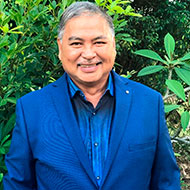
Joe E. Quinata
Coordinator of community archaeology program and relationship with SHIPO.
Joe E. Quinata grew up in the heritage village of Humåtak, Guåhån and is currently the Chairman and founder of the Humatak Community Foundation. Mr. Quinata started his career in preservation about 30 years ago when he opened the office of the the Guåhån Preservation Trust, a non-profit, public corporation and the only organization of its kind in the Micronesian region. Mr. Quinata is considered a pioneer in heritage preservation on Guåhån as he has spearheaded the restoration and preservation of significant places that matter to the people of Guåhån. Under the Guåhån Preservation Trust, he championed the legal fight to preserve and protect Pågat village, Guåhån’s sacred ancestral sites, from the U.S. Military’s plan to build live firing ranges on the sites.
Joe Quinata was appointed as Trustee member and Chairman of the Advisor group of the National Trust for Historic Preservation. He is a founding member of the Asian and Pacific Islanders American for Historic Presevation and the National Preservation Partners Network, both national public corporations.
Joe shares his passion for heritage preservation through his writings, lectures, and storytelling in the community, university, and professional development sessions. He is a conflict resolution mediator and board member of Inafa’Maolek Mediation Center. He has earned is undergratuate and graduate degrees in business administration at the University of Guåhån.
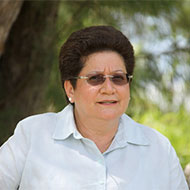
Omaira Brunal-Perry, MA, JD
Research Member in ABERIGUA.
Omaira Brunal-Perry, MA, JD earned a juris doctorate from Universidad Libre, Bogota, Colombia, and a M.A. in Library Science from Syracuse University, New York. She also received a certificate from the U.S. National Archives – Modern Archives Institute, 2005. Currently, she is an associate professor at the RFT Micronesian Area Research Center, University of Guåhån. Brunal-Perry also serves as the Spanish legal historiographer and curator of the Spanish Documents Collection and Manuscripts Collection at MARC. Her research interest is on documents related to the colonial Spanish administration in the Manislan Mariånas and Caroline Islands. Brunal-Perry has done extensive archival research in Mexico, the Philippines, Spain, and the US. In addition, she directed the project “The Spanish Language Judicial Records of Guåhån.” She has published several articles and books.
Council of State Archivists CoSA – Membership
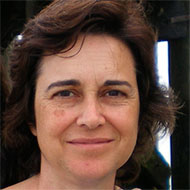
Lourdes Prados Torreira
Research Member in ABERIGUA.
Is full Professor of Archaeology in the Department of Prehistory and Archaeology at the Universidad Autónoma de Madrid (Spain). Her fields of research have focused on Mediterranean Protohistory specially connected with Iberian Archaeology, rituality and sacred spaces, endorsed with different publications on the analysis of Iberian religiosity. She has also strengthened the theoretical and methodological application of Gender and Feminist archaeology in studies on Iberian Protohistory. Her publications, in this aspect have focused on the study of Iberian women from different perspectives. She is interested in understanding the role of women and children in religous practices. In recent years her interest has also been oriented to include the gender perspective in archaeological museums, with various internationals publications and leading the R-D: “Discrimination against women: the origins of the problema. The social and educational role of Archaeological Museums against gender violence (2013-2016) (M. Trabajo y AA.SS.).
Since 2018 she is a member of the Archaeological Spanish Research Team Aberigua doing research on the Island of Guåhån. She is also one of the curators of the exhibition Let´s go around the world. The CHamorru Culture: identity and archaeology in Guåhån. (Museo Nacional de Antropología Madrid. September 2021.
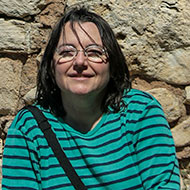
Laura Trellisó Carreño
Research Member in ABERIGUA
PhD in History and researcher at the Archaeology Laboratory at Pompeu Fabra University, Barcelona. Laura is an osteoarcheologist whose research focuses on the reconstruction and interpretation of a given population’s way of life through the analysis of human remains in archaeological contexts. She has been part of the Tyre Project since 1997 and is responsible for the study of the skeletal remains of the Phoenician cemetery of Al-Bass (Lebanon). In 2018 she joined the ABERIGUA project and since 2019 she has been an integral part of the Colonialism, Gender and Materialities (CGyM) project.
Laura also coordinates a workshop for young people (From the archaeological excavation to the laboratory) which is designed to bring archaeological research closer to the secondary school community and promote a greater knowledge of historical and cultural heritage.
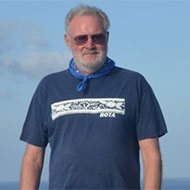
Boyd Dixon
Research Member in ABERIGUA
Boyd Dixon is a Senior Archaeologist for the Cardno GS and SEARCH offices in Guåhån and the CNMI and lives in Chalan Pago with two boonie dogs. With over 30 years of archaeological experience in the Manislan Mariånas, Hawai`i, and the Asian-Pacific his interests embrace the many people, places, and stories shared with him, both old and new. In 2019 he received the Northern Marianas Humanities Council Governor’s Humanities Award for Lifetime Achievement in the Humanities.
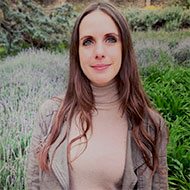
Verónica Peña Filiu
Research Member in ABERIGUA
Verónica Peña Filiu is a historian interested in the role of food in early modern cross-cultural encounters and the configuration of new foodways in colonial situations. She has been doctoral fellow at Universitat Pompeu Fabra (Barcelona, Spain) and the Leibniz-Institute of European History (Mainz, Germany). Verónica holds a PhD in History from Universitat Pompeu Fabra (2020), and she has recently been awarded a short-term fellowship at the John Carter Brown Library (Providence, United States).
Verónica has conducted archival research in Spain, Italy, Mexico, and Guåhån. She has participated in archaeological campaigns in Guåhån (2017 and 2018) within the framework of the project ABERIGUA (Archaeology of Iberian Contact and Colonialism in Guåhån). At Universitat Pompeu Fabra, Verónica has taught undergraduate courses on modern history and graduate courses on the history of the Asia-Pacific region.
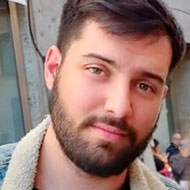
Enrique Moral de Eusebio
Research Member in ABERIGUA
Enrique Moral de Eusebio is a Margarita Salas postdoctoral researcher at the Institut d’Història de la Ciència, UAB. He combines approaches and methodologies from History, Anthropology and Archaeology to explore the role that sexuality and sexual encounters played in the Spanish colonization of Tåno’ Låguas yan Gåni (the Mariana Islands) between the 16th and 18th centuries. From a transfeminist stance and following anti-colonial authors, his research focuses on the interrelationship between sexuality and power, emphasizing its most public, strategic and conflictive aspects, such as ethnosexual violence and resistance.
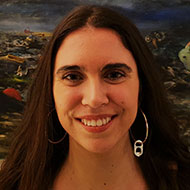
Carmen Á. Granell
Research Member in ABERIGUA
Degree in Archaeology at the Complutense University of Madrid and pre-doctoral researcher (FPU Fellow) in History at the Pompeu Fabra University. In her research project, “Scrutinizing the materialities of the Manislan Mariånas (1500 BCE – 1898 CE): transgenerational learning as a historical dynamic of communitarian re-existence”, she addresses her main historical concerns: (1) the urgency of measures for the historical repair of colonialism in the former European metropolises; (2) the tracking of the dynamics of resistance and resilience to the colonial globalization of ageism and ableism; and (3) the relevance of an ethical, public, collaborative and pedagogical historical knowledge. Carmen is also a member of the Colonialism, Gender and Materialities (CGyM) research group and of the Editorial Board of Entremons magazine.
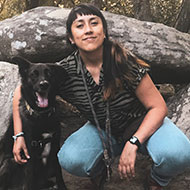
Yvonne R. Ramírez Corredor
Research Member in ABERIGUA
Yvonne R. Ramirez Corredor is an Anthropology graduate from National University of Colombia, MA in Archaeology from the National Museum of the Federal University of Rio de Janeiro and MA in History of Science from Autonomous University of Barcelona. She is currently a student in PhD History program at Pompeu Fabra University. She is also interested in the changes and continuities in the construction of colonial spaces associated to the incorporation of Guåhån and the Manislan Mariånas (western Pacific) to the colonial network of the Spanish Empire, encompasing broader topics related to materialities, heritage, gender, ethnicity and colonialism.
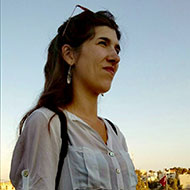
Matilde Carbajo
Research Member in ABERIGUA
Matilde Carbajo obtained a bachelor in Archaeology at the University Complutense of Madrid and a bachelor in Cultural Anthropology at Lumière Lyon 2 University. She is currently doing her PhD at the Pompeu Fabra University, as part of the Colonialism, Gender and Materialities (CGyM) research group. Her research project is entitled: “Ailment and remedy: continuity and change in healing practices and public health in the Manislan Mariånas (Western Pacific) (900AD – 1898AD)”.
She is interested in exploring the nature/culture dichotomy and (1) how western colonists exported and imposed this dichotomy through colonial strategies, (2) how this dichotomy is perpetuated today, including in our perception of cultural and natural heritage, and (3) how this perception constitutes the basis for our identity formation.
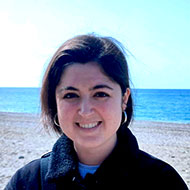
Noelia Villena Rodríguez
Research Member in ABERIGUA.
Noelia V. Rodríguez is an Archaeolgy graduate (Universidad de Granada) and MA in History (Universidad de Granada) and MA in Education (Universidad de Granada). She is currently a student in PhD History program at Pompeu Fabra University. . Her research project is entitled: “Gazes from and towards the ocean in the Mariana Islands (Western Pacific). Perceptions, representations and appropriations in the context of Spanish contact and colonisation (1521- 1898).” Her main interests include: The perception of the sea, the representation and apropiation of the seascapes through the comerce and the establishment of a marine colony and the impact of the colonialism in the relationship with the sea.
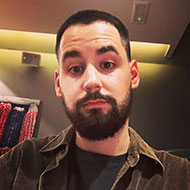
Enric Castillo Hidalgo
Research Member in ABERIGUA.
Enric Castillo Hidalgo is a history graduate from the University of Granada and has an MA in World History from Pompeu Fabra University. He is currently a student in the PhD History Program at Pompeu Fabra University. His doctoral research concerns the colonisation of the Mariana Islands, focusing on the construction of the colonial empire in the Islands, and the effects that colonisation had on the Chamorro population. He is especially interested in the colonisers’ perception of the Chamorro people, as well as how the colonisers imposed their cultures on the native population.

Alba Abad España
Phd student
Archaeologist by the Complutense University of Madrid (2020) with a master’s degree in Professional Archaeology and Integral Heritage Management from the University of Alicante (2021). She joins as a PhD the CGM (Colonialism, Gender and Materialities) research group of the Department of Humanities at the Universitat Pompeu Fabra through the European research project ERC-2023-AdG “Material Culture, Gender and Maintenance Activities in Making and Resisting Early Modern Colonial Globalization. A Long-term Perspective from the Mariana Islands” (MaGMa).
Her personal and academic interest in maintenance activities as a tenet of identity formation has been brewing for some time. Her multidisciplinary perspective—archaeological and anthropological—was solidified during a year’s stay at the University of California, Berkeley, thanks to a Fulbright scholarship (2023-2024). This perspective, guided by a feminist positioning, is now focused on a doctoral dissertation that addresses (1) the conception of time, (2) celebrations/festivities, and (3) forms of community and relational identity construction linked to maintenance activities in Tåno’ Låguas yan Gåni (Mariana Islands). This research line is supported by a diachronic perspective to understand the changes and continuities resulting from Catholic missions.
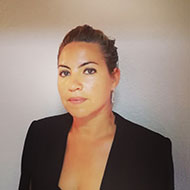
Elena Pérez Álvaro
MSCA Postdoctoral Fellow
Dr. Elena Perez-Alvaro is a globally recognized expert in underwater cultural heritage, specializing in the ethical, legal, and practical challenges of managing submerged cultural sites. As a Marie Curie Fellow—a prestigious grant funded by the European Commission—she conducts groundbreaking research on the ethical and sustainable management of underwater cultural heritage, focusing on several islands in the Pacific. She is the author of several influential works, including “Underwater Cultural Heritage: Ethical Concepts and Practical Challenges” (Routledge, 2019) and “The Hidden Hand of Underwater Cultural Heritage” (Brill, 2025). Her publications explore innovative, multidisciplinary approaches to the management of underwater heritage and the integration of ethical frameworks into global heritage policies.
Dr. Perez-Alvaro is an Expert Member of the ICOMOS International Scientific Committee for the Underwater Cultural Heritage and the ICOMOS Committee on Intangible Cultural Heritage. Previously, she served as an Associate Professor in the Master’s program for Cultural and Natural Heritage Management at UNIR University in Spain and as a Research Associate at Nelson Mandela University in South Africa. Her work continues to bridge the gaps between cultural identity, sustainability, and heritage preservation, advocating for equitable and inclusive heritage management practices worldwide.
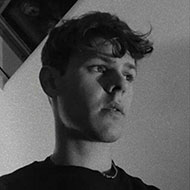
Luis Berrocal Maya
Phd student (FI Fellow)
Luis Berrocal-Maya obtained a bachelor in history at the Universidad Autónoma de Madrid and a Master’s Degree in Archaeology and Heritage from the same institution. Currently, he is working on his PhD at the Pompeu Fabra University related to the research group Colonialism, Gender and Materialities (CGyM). His thesis is based on architectural archaeology through which he investigates the social implications of the transition from the precolonial to the colonial period in the Mariana Islands.
